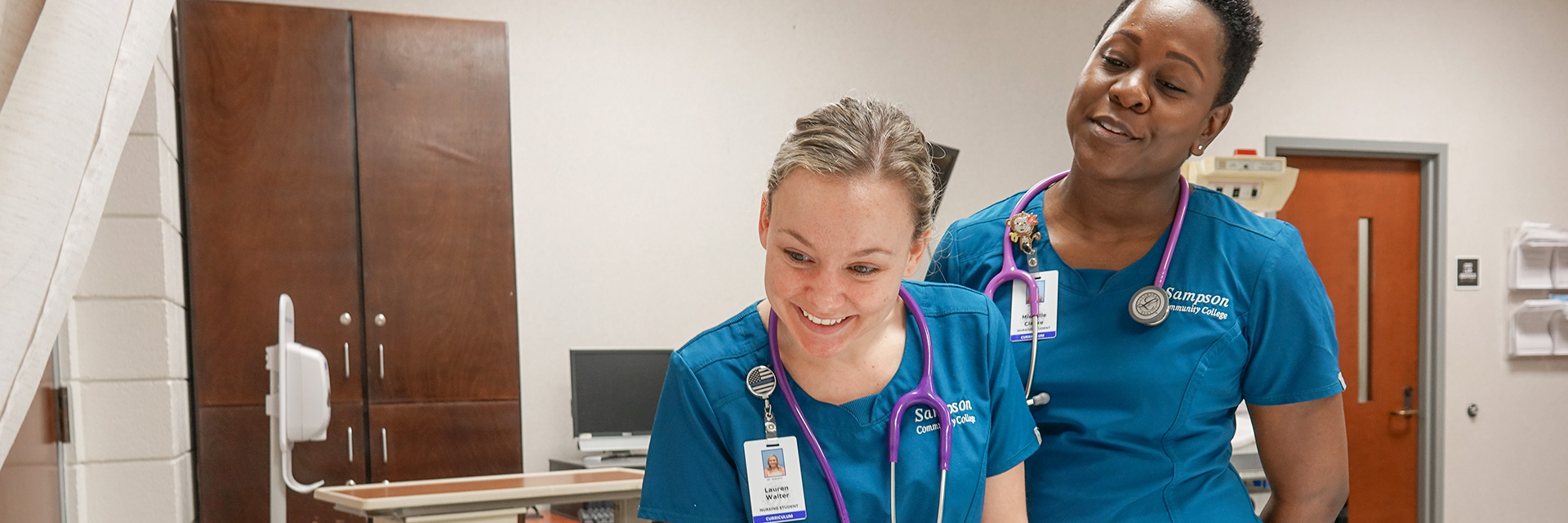Overview
With the knowledge and skills you will acquire as a graduate, employment can be found in hospitals, physician offices, nursing homes as well as other health care settings.
SCC is a leader in providing health programs which allow graduates to make a difference in the lives of others. SCC faculty are committed to preparing graduates who are competent and effective health care providers for our community in improving the quality of life. The Health Care programs faculty and staff model SCC’s core values of academic excellence, teamwork, responsibility, accountability, collaboration with our community, life-long learning, honesty and integrity in our programs and our activities.
Explore Programs

Associate Degree Nursing (ADN)
The Two-Year Associate Degree in Nursing program is a comprehensive two-year course that prepares students to become entry-level nurses. It covers essential nursing subjects like anatomy, pharmacology, and various types of nursing (medical-surgical, pediatric, maternal-child, and community health). Students gain practical skills and real-world experience to provide quality patient care.
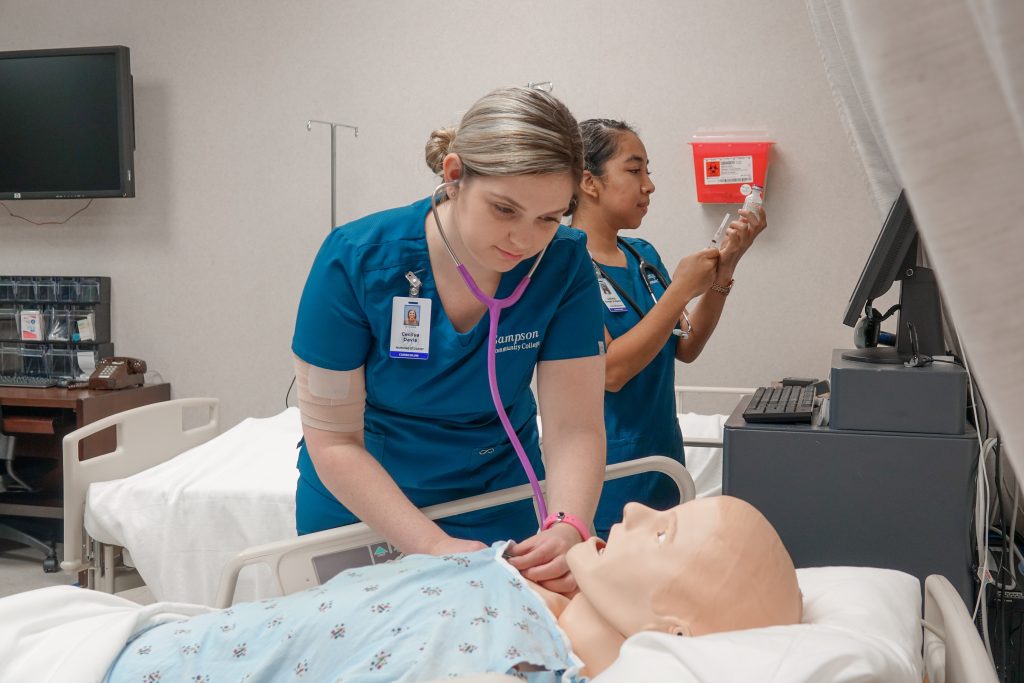
Licensed Practical Nursing (LPN)
The Licensed Practical Nursing (LPN) program provides focused and practical nursing education for students to become licensed practical nurses. It covers fundamental nursing concepts, anatomy, physiology, medical terminology, and essential clinical skills, including medication administration. Students learn to provide direct patient care under supervision.
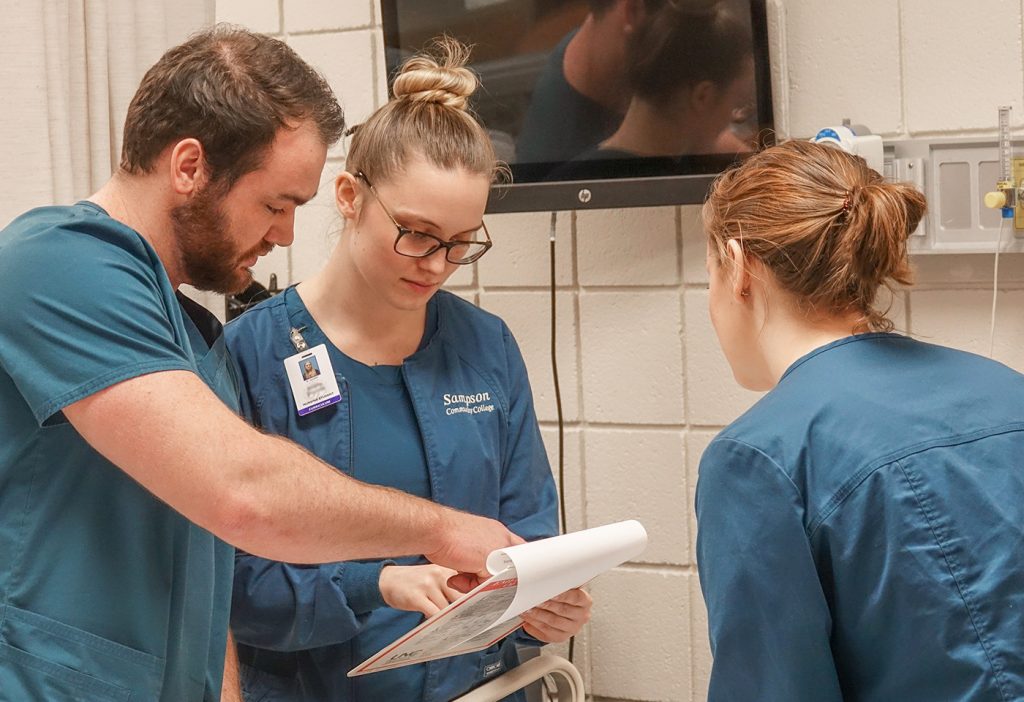
LPN to ADN – Advanced Placement
The LPN to Associate Degree Nurse Advanced Program is designed for licensed practical nurses who wish to further their nursing education and become registered nurses. This program allows LPNs to build on their existing knowledge and experience, and earn an associate degree in nursing.
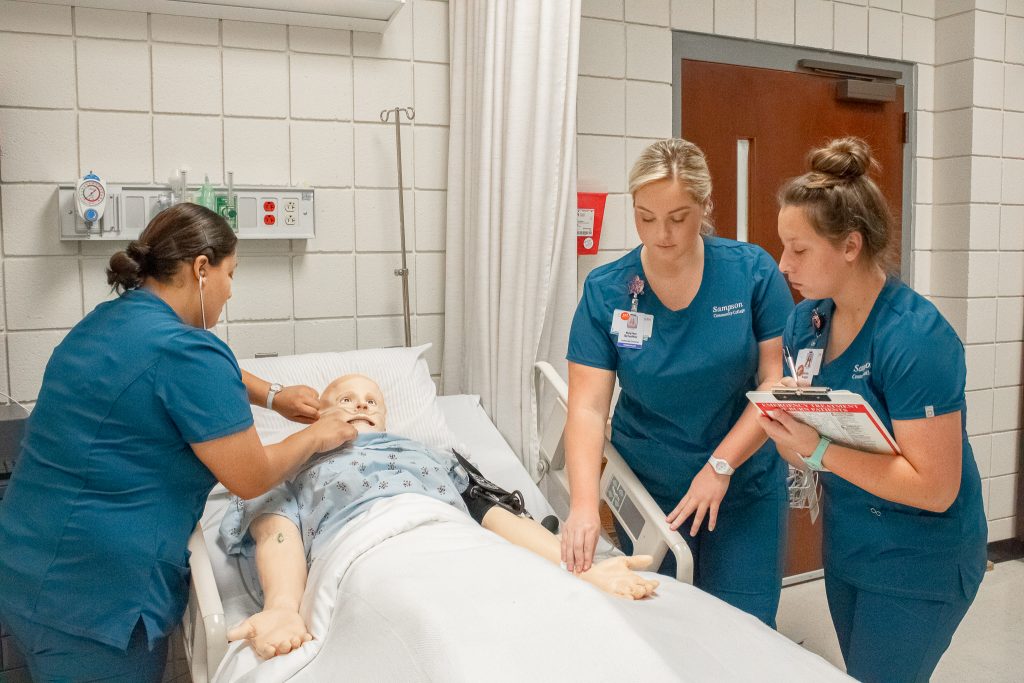
LPN to ADN – Online
The LPN to Associate Degree Nurse Advanced Online Program is designed for licensed practical nurses who want to become registered nurses through a flexible and convenient online learning format.
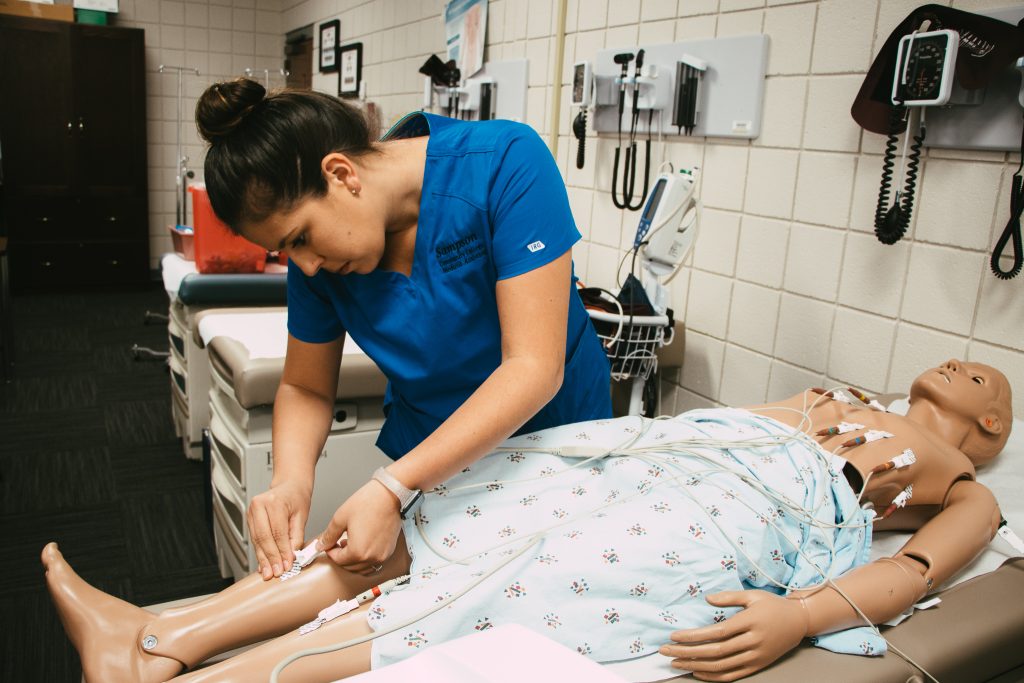
Medical Assisting
The Medical Assisting Program is a comprehensive training course designed to prepare students for a rewarding career as medical assistants in various healthcare settings. Medical assistants play a crucial role in supporting healthcare providers by performing both administrative and clinical tasks.
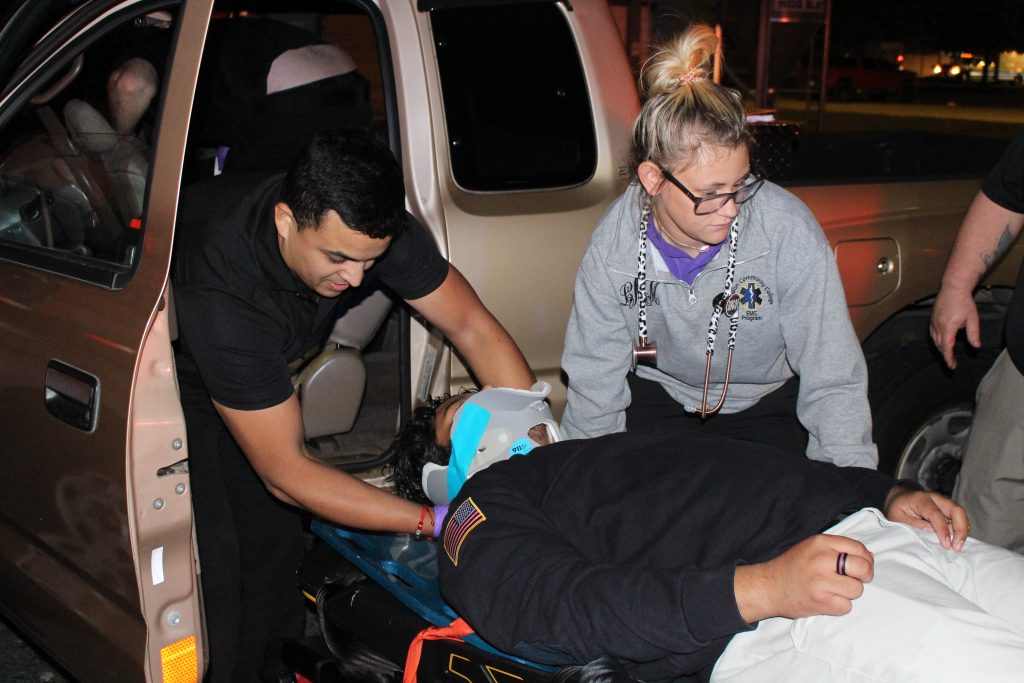
Emergency Medical Science
The Emergency Medical Science Paramedic Program is a specialized and intensive training course that prepares students to become paramedics, equipped to handle critical medical emergencies and provide advanced life support to patients.
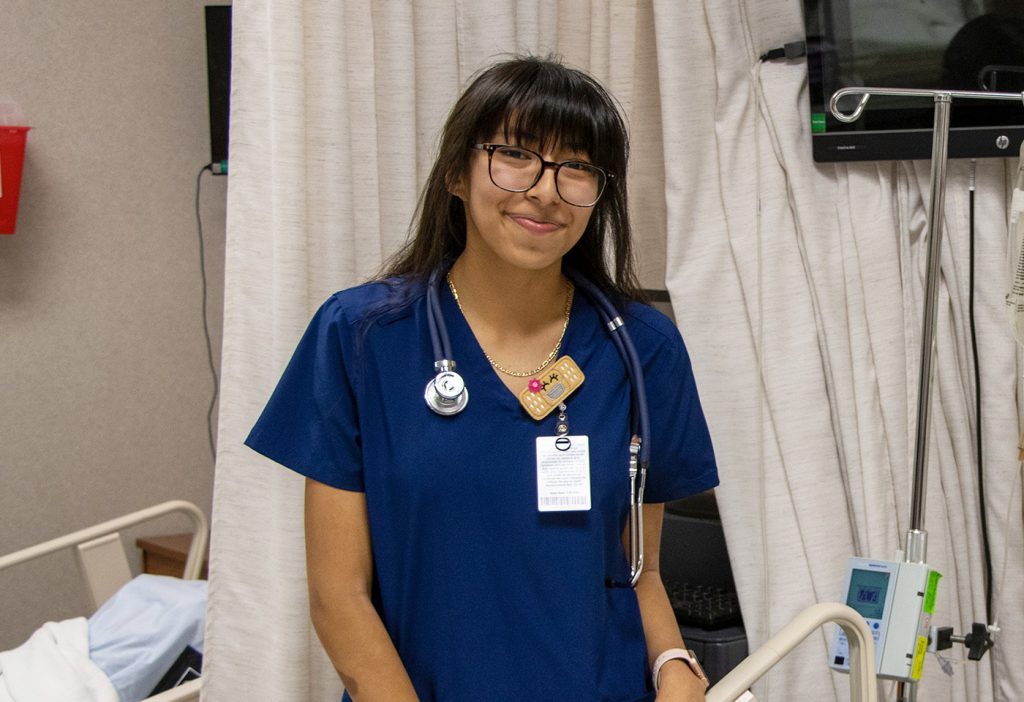
Therapeutic Diagnostic Services Nurse Aide
The Therapeutic Diagnostic Services Nurse Aide Program is a specialized training course that prepares individuals to become certified nurse aides in therapeutic diagnostic settings, such as hospitals or clinics.
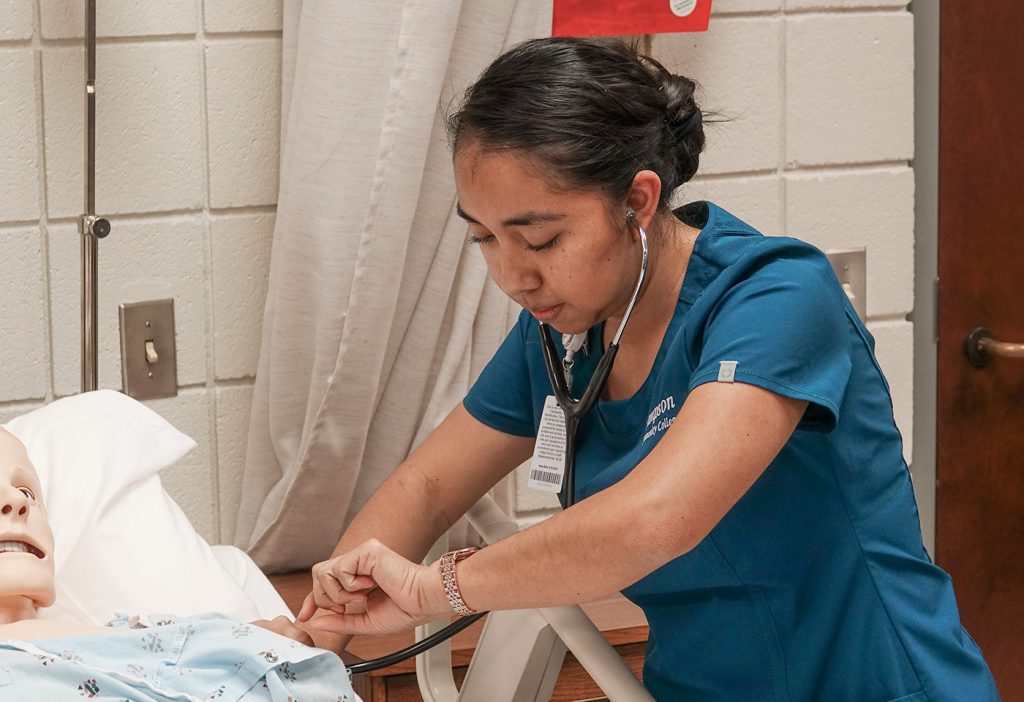
Associate in General Education – Nursing
The Associate in General Education – Nursing program is designed to provide students with a foundational education in general subjects while also preparing them for entry-level nursing positions.
More Information
Contact Us
Ma’Ishia Weeks, Administrative Assistant Health Programs
(910) 900-4013
mweeks@sampsoncc.edu
Technology 105
Licensure Disclosures
The nursing programs at Sampson Community College satisfy the professional licensure requirements in North Carolina and prepare students to sit for these exams. However, requirements in other states may be different. North Carolina is considered a compact state regarding licensure. If you are considering a program that may lead to a professional license, it is advised to inquire with your prospective state Board of Nursing.
Nursing Accreditation and Approval
The Associate Degree and Practical Nursing programs at Sampson Community College located in Clinton, NC are accredited by:
Accreditation Commission for Education in Nursing (ACEN)
3390 Peachtree Road NE, Suite 1400
Atlanta, GA 30326
Phone: (404) 975-5000
The most recent accreditation decision made by the ACEN Board of Commissioners for the Associate Degree and Practical Nursing programs is Continuing Accreditation.
View the public information disclosed by the ACEN regarding this program on the ACEN website.
The Associate Degree and Practical Nursing programs are given full approval by:
North Carolina Board of Nursing (NCBON)
4516 Lake Boone Trail
Raleigh, NC 27607
Phone: (919) 782-3211
Statement Regarding Vaccinations
Sampson Community College does not require specific vaccines in order to enroll or attend classes on campus. Nursing and health science programs require clinical hours to be completed at one or more at clinical sites under agreement with the College. Students admitted to these programs must comply with the requirements set by outside clinical agencies which may include a criminal background check, drug screen, physical, and/or specific vaccines. Decisions about an individual student’s presence in the clinical environment are made by the clinical agencies.
Clinical sites may be subject to the COVID-19 requirements of the Centers for Medicaid and Medicare Services or other requirements established by the clinical site. Students are guests in these clinical facilities and in order to maintain clinical privileges, must abide by the clinical site’s requirements for students and faculty.
Notice of changes of agency requirements may or may not provide students or faculty with advance notice of any changes. If vaccination becomes a requirement at one of SCC’s clinical agencies, lack thereof may affect students and their completion of a course and program.
If requirements are made by an SCC clinical agency and a student chooses not to comply, they may not be eligible to complete the clinical requirements of the program and will become unable to complete a course and the program.
